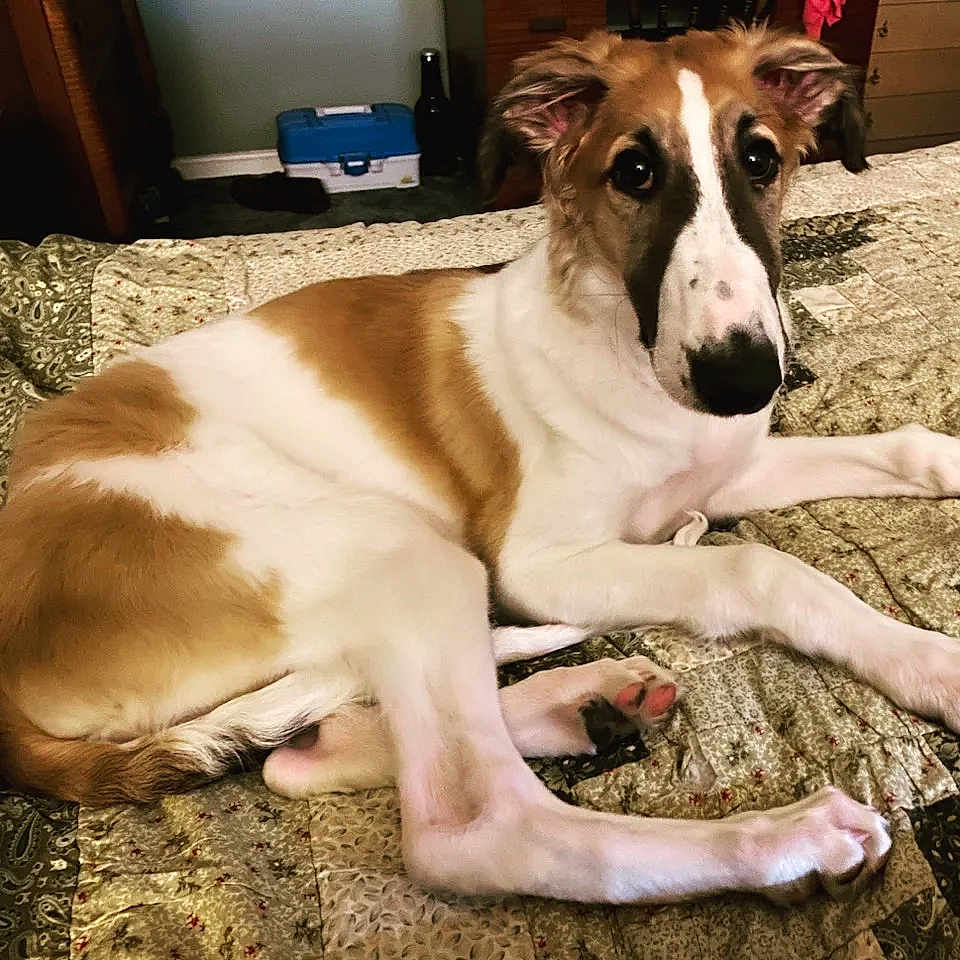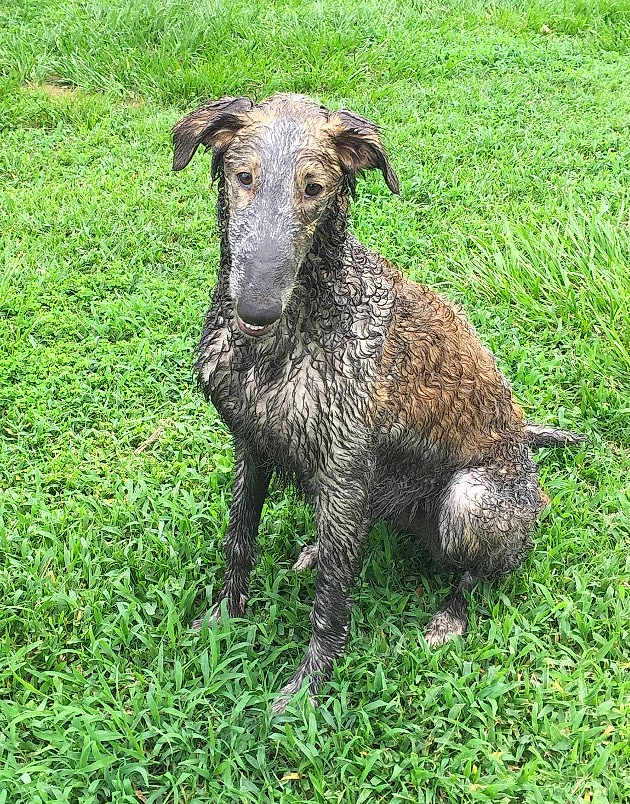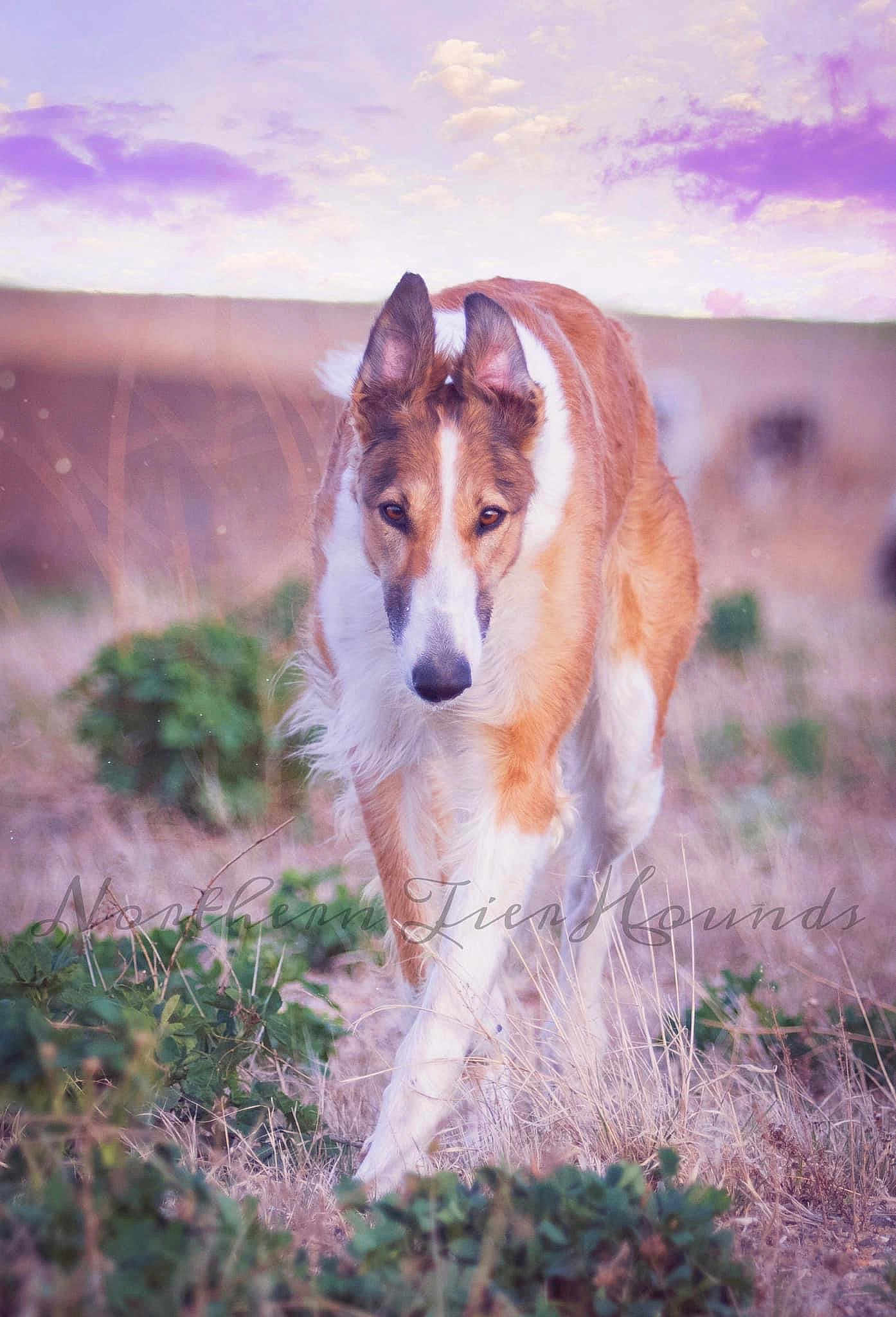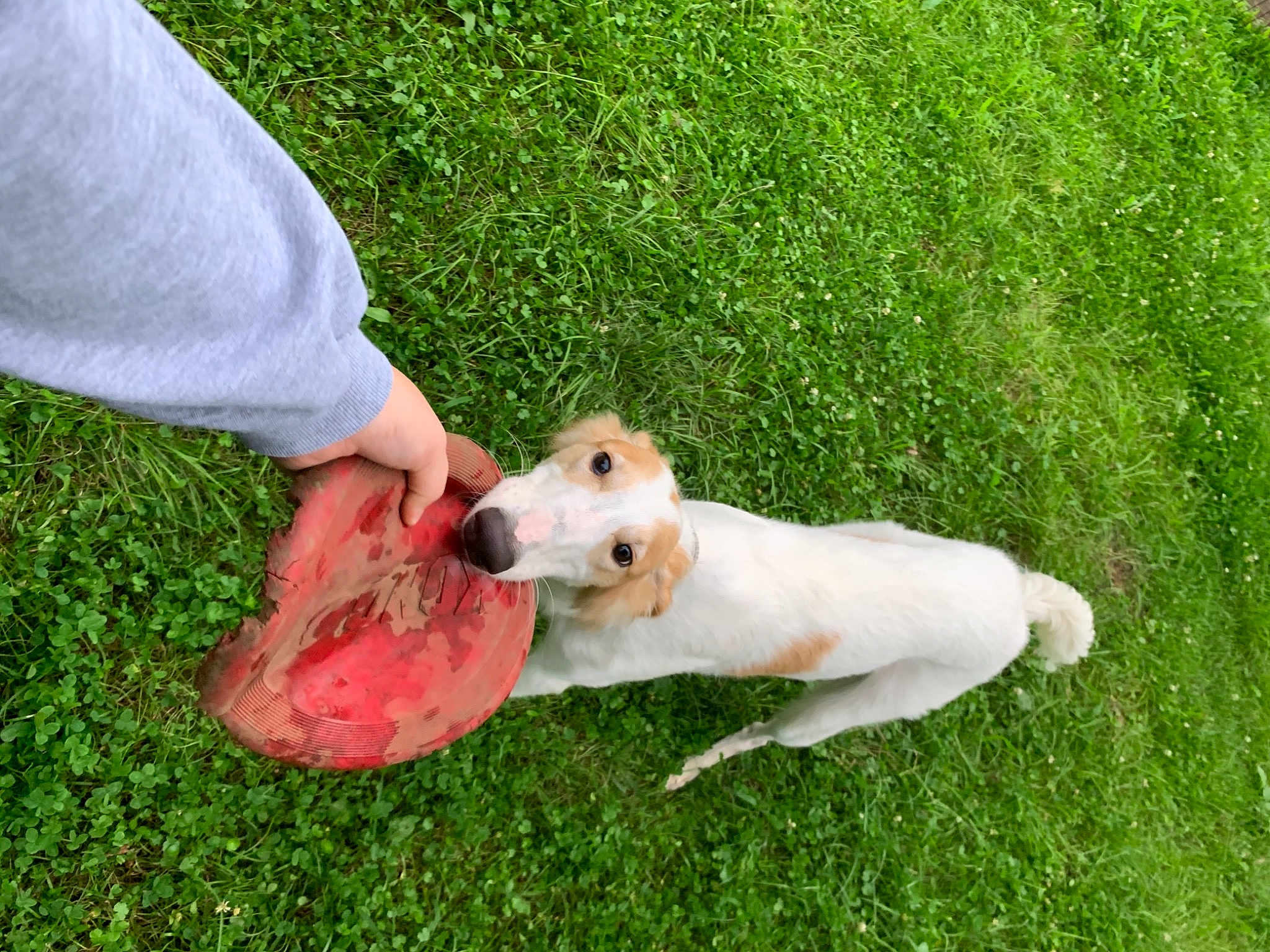
"The Borzoi is often regarded as the epitome of grace and aristocracy in the canine world, tracing its storied origins back to the Russian aristocracy, where it was once used for hunting wolves and other game across the vast expanses of the Russian plains." This breed's rich history and elegant demeanor continue to captivate dog enthusiasts around the world, highlighting the diverse and deeply significant world of dog breeds.
Personality and Behavior of the Borzoi
Borzoi, also known as the Russian Wolfhound, is renowned for its gentle and dignified demeanor. These dogs are typically calm and reserved, traits that are deeply embedded in their lineage and history. Despite their somewhat aloof nature, Borzois are known to form strong bonds with their families and can be exceptionally loyal and affectionate to those they trust.
Borzoi tend to display a dignified manner, reflecting their aristocratic heritage. They are usually quiet and reserved indoors, making them excellent companions for more tranquil households. However, their calm demeanor does not mean they lack energy; Borzois are built for speed and can display bursts of energy, particularly when given the opportunity to run freely in a secure area.
Despite their size, Borzois are incredibly graceful and move with a sense of agility that is almost feline. This breed's personality can be somewhat enigmatic to those unfamiliar with them, as they balance their reserved elegance with moments of exuberant sprinting. Training them requires positive reinforcement, patience, and a deep understanding of their independent nature.
Borzois have an inherent independence that can sometimes be mistaken for stubbornness. It’s essential to approach their training with calm consistency and an air of mutual respect.
Meanings, History and Origins of the name Borzoi
The name "Borzoi" is derived from an archaic Russian word meaning "swift." This nomenclature is quite fitting, given the breed's remarkable speed and agility. Historically, the Borzoi was bred by Russian aristocrats and nobility for wolf hunting, a testament to their powerful build and swift, agile movements.
Borzois trace their origins back to 17th century Russia, where they were used for hunting across the vast Russian steppes. The breed's significance was not only functional but also symbolic, embodying the grandeur and status of their noble owners. The breed's full Russian name, Russkaya Psovaya Borzaya, translates to "Russian Long-Haired Sighthound," highlighting both their sleek build and their keenness of sight.
The breed's history is studded with fascinating anecdotes. For example, Tsar Ivan the Terrible and other royalty often bestowed Borzois as royal gifts to nobility, further cementing their status as regal companions. Over time, they transitioned from working dogs to cherished family pets, especially after the Russian Revolution when their association with the aristocracy put them at risk.
Today, Borzois are celebrated for their noble bearing and historical significance, maintaining an air of mystery and elegance in the modern domestic world.
Popularity of the Borzoi
Borzois have enjoyed a fluctuating level of popularity throughout history. In Russia, their status as hunting dogs endowed them with significant cultural and social importance. However, their association with the aristocracy led to a decline in their numbers post-revolution. Thankfully, efforts to preserve the breed allowed the Borzoi to gain a foothold in other parts of the world.
In English-speaking countries, the Borzoi saw a resurgence in the early 20th century, particularly in Great Britain and the United States. Their regal appearance and graceful demeanor made them popular among dog enthusiasts and aristocrats alike. The American Kennel Club officially recognized the breed in 1891, which helped solidify its presence in the dog-loving community of the United States.
Globally, the Borzoi has a dedicated following. The breed is particularly cherished in Europe, Australia, and Japan, where dog shows frequently feature these graceful hounds. Despite being less common than some other popular breeds, such as the Labrador Retriever or the German Shepherd, the Borzoi maintains a devoted following among dog enthusiasts who appreciate its unique blend of grace, speed, and history.
Health and Care of the Borzoi
The Borzoi is generally a healthy breed, but like all breeds, they are susceptible to specific health conditions. It is essential to be aware of these conditions if you are considering adopting a Borzoi. Some of the more common health issues in Borzois include hip dysplasia, cardiac problems, and bloat (gastric torsion).
Proper dietary management and regular veterinary check-ups are crucial for maintaining the health of a Borzoi. Given their deep chests, they are particularly prone to bloat, which can be life-threatening. Owners are advised to feed their Borzois smaller, more frequent meals and to avoid vigorous exercise immediately before and after eating.
Borzois have relatively low grooming needs thanks to their fine, silky coat, which sheds seasonally. Regular brushing helps keep their coat healthy and free from mats. Dental hygiene is also important, as Borzois can be prone to dental issues. Regular teeth cleaning and check-ups are advised to maintain good oral health.
Keeping a Borzoi healthy and happy also involves providing ample opportunities for exercise. While they enjoy lounging around the house, they do need regular, vigorous exercise to stay fit and mentally stimulated. This typically includes long walks and opportunities to run in secure, open spaces.
Training and Education of the Borzoi
Training a Borzoi requires a gentle and patient approach due to their independent and sometimes aloof nature. Early socialization is crucial, as it helps Borzois become well-rounded adults. Exposure to different people, environments, and other animals can significantly benefit their development.
Positive reinforcement is the most effective method for training a Borzoi. These dogs respond well to treats, praise, and affection. Harsh training methods or punishment can lead to a breakdown in the bond between the dog and the owner, making training more challenging.
Given their history as hunting dogs, Borzois have a strong prey drive. This trait means that they may be inclined to chase small animals. Therefore, recall training (teaching your dog to come when called) is essential, though it can be particularly challenging with this breed. Training sessions should remain engaging and varied to keep a Borzoi's interest piqued.
While Borzois can be somewhat reserved with strangers, they are generally good-natured and enjoy the company of their family. They thrive in environments where they are provided with both mental and physical stimulation. Puzzle toys and structured playtime can be very beneficial in meeting their cognitive needs.
Choosing the right dog breed involves considering factors such as temperament, exercise needs, and how well the breed fits into your lifestyle. For example, if you lead a tranquil lifestyle and appreciate elegance and calm companionship, the Borzoi could be an ideal choice.
In conclusion, dog breeds each have their unique stories and characteristics, and selecting the right one is a delightful journey. At Pageant Dog, we are proud to feature many Borzois in our photo contests, showcasing their dignified beauty and grace. Choosing a Borzoi can bring a touch of elegance and historical richness into your home, making them a truly rewarding breed to own.





